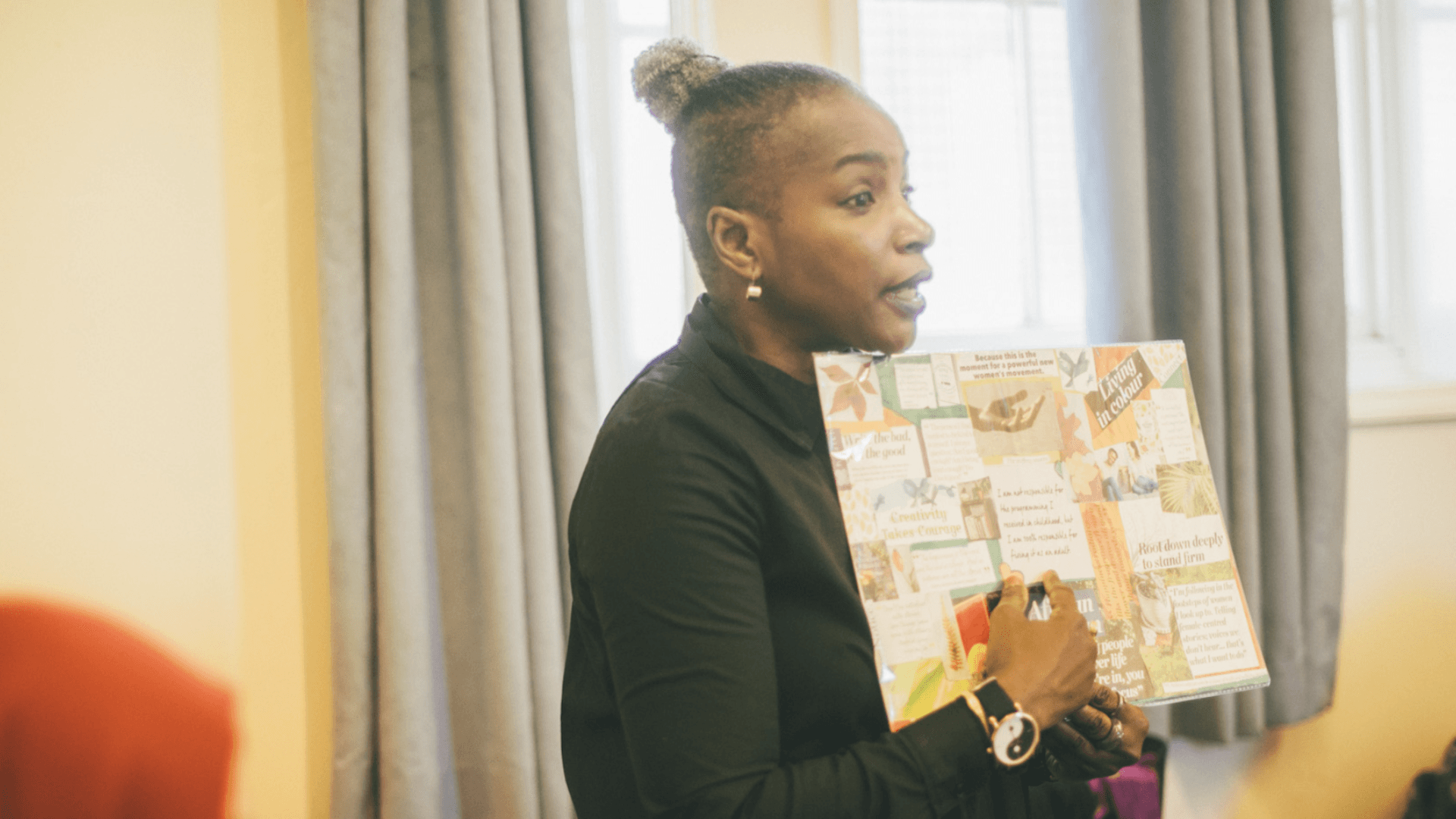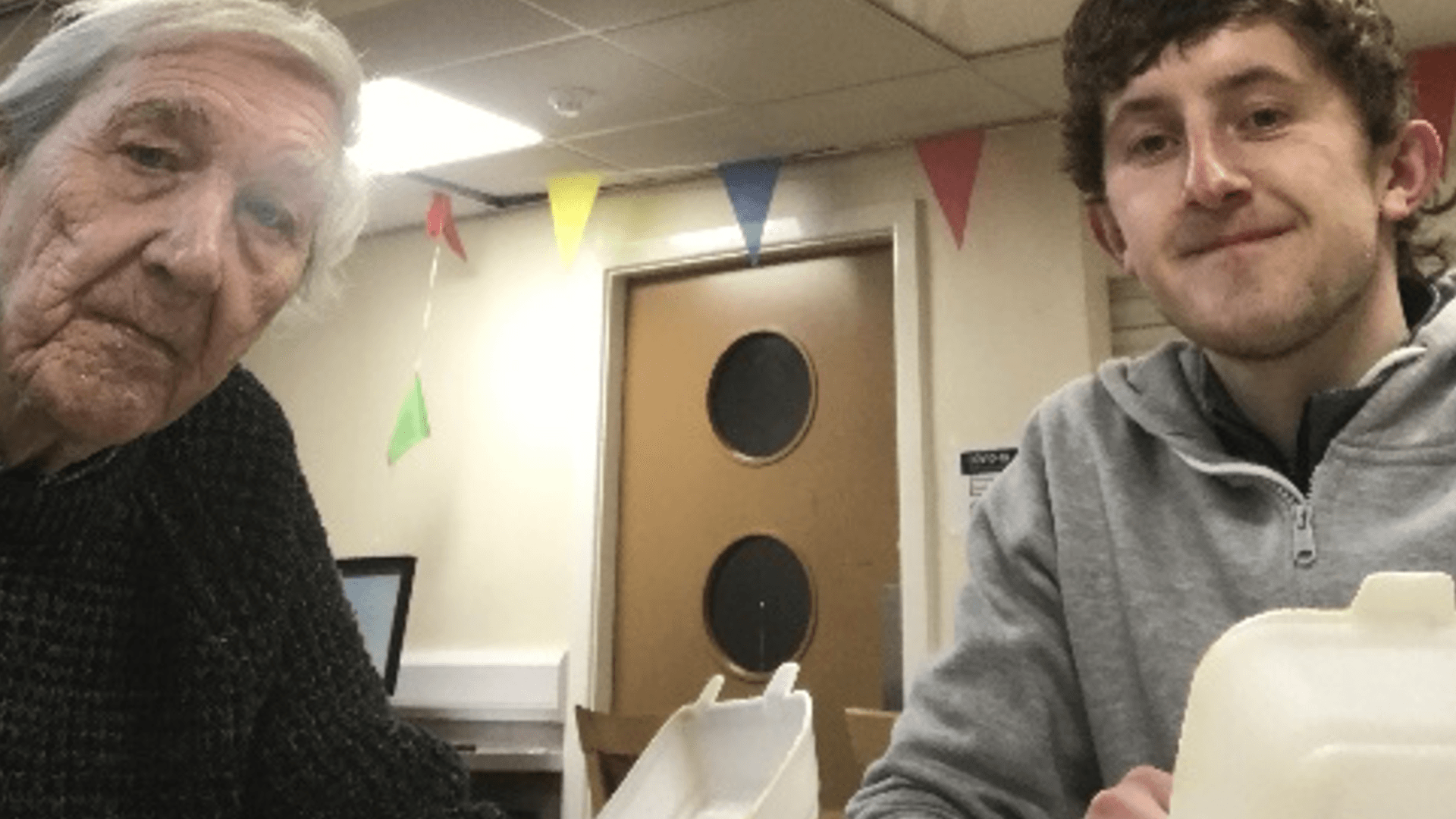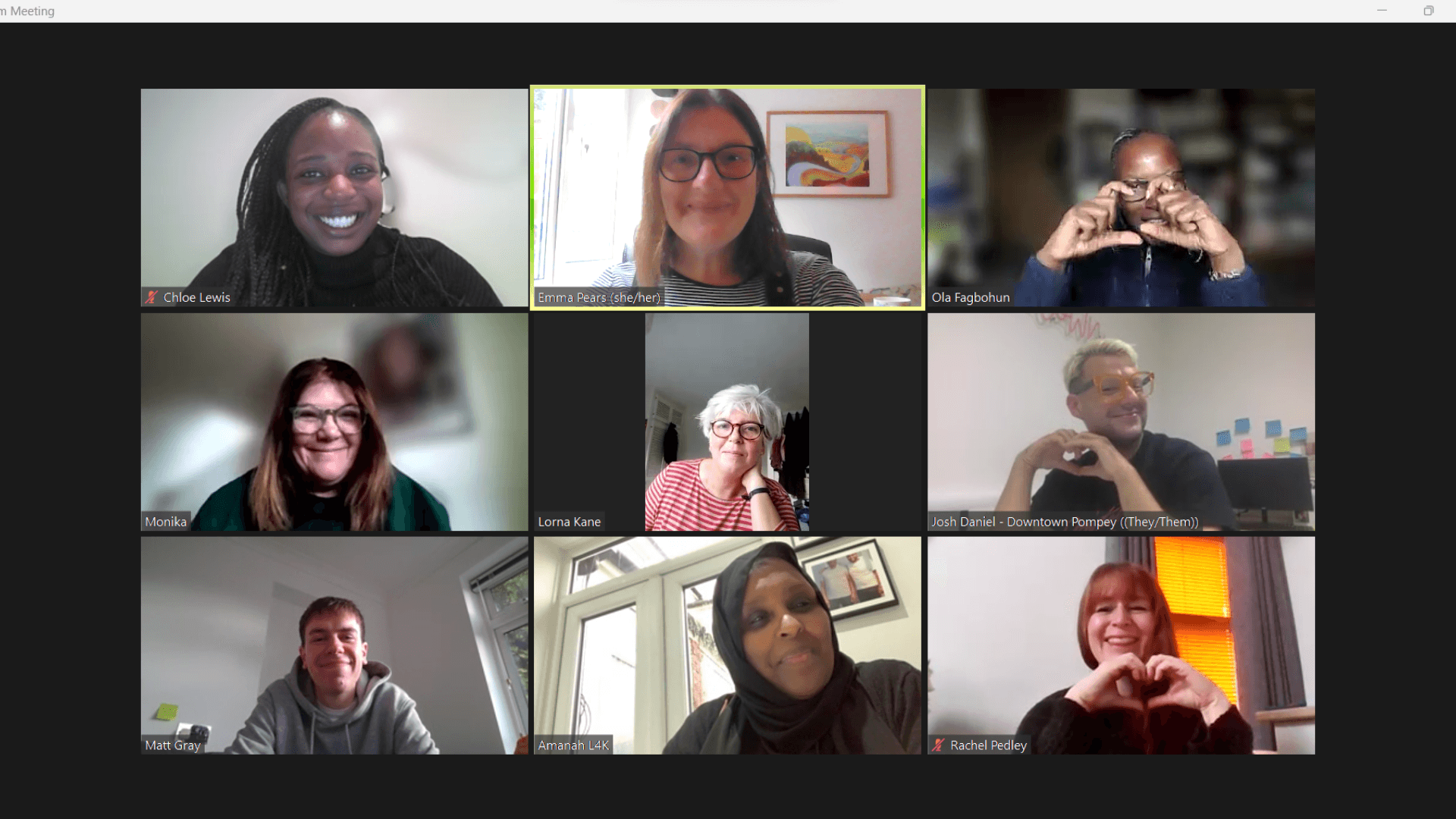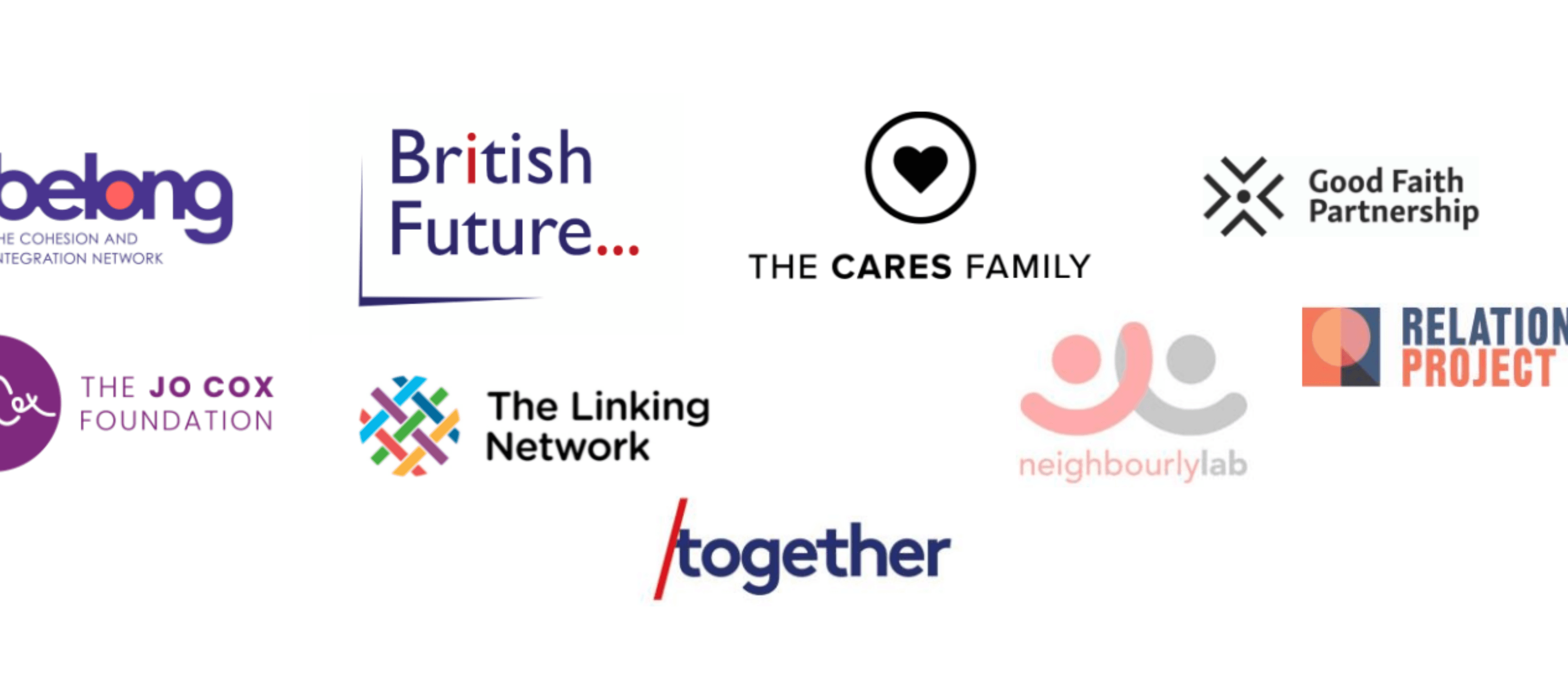
Why we (still) need a Community Spaces and Relationships Strategy
Posted by The Cares Family on 19th October 2022
Please note: this post is 37 months old and The Cares Family is no longer operational. This post is shared for information only
Relationships don’t tend to loom large in public policy discussions. As individuals living our lives, we all recognise that it’s our ties to one another that shape us and lift us up. But, as citizens participating in political debates and making decisions about how our society should be organised, we somehow slip into believing that what is, for most of us, the most central part of our lives can in fact be set to one side.
In our paper Building our social infrastructure, The Cares Family sought to make the case that a focus on relationships and associations should instead be at the very core of our politics and policymaking. Alongside our research partners at Power to Change, we set out how our social connection deficit is sapping our communities of growth and opportunity, health and wellbeing, empathy and trust.
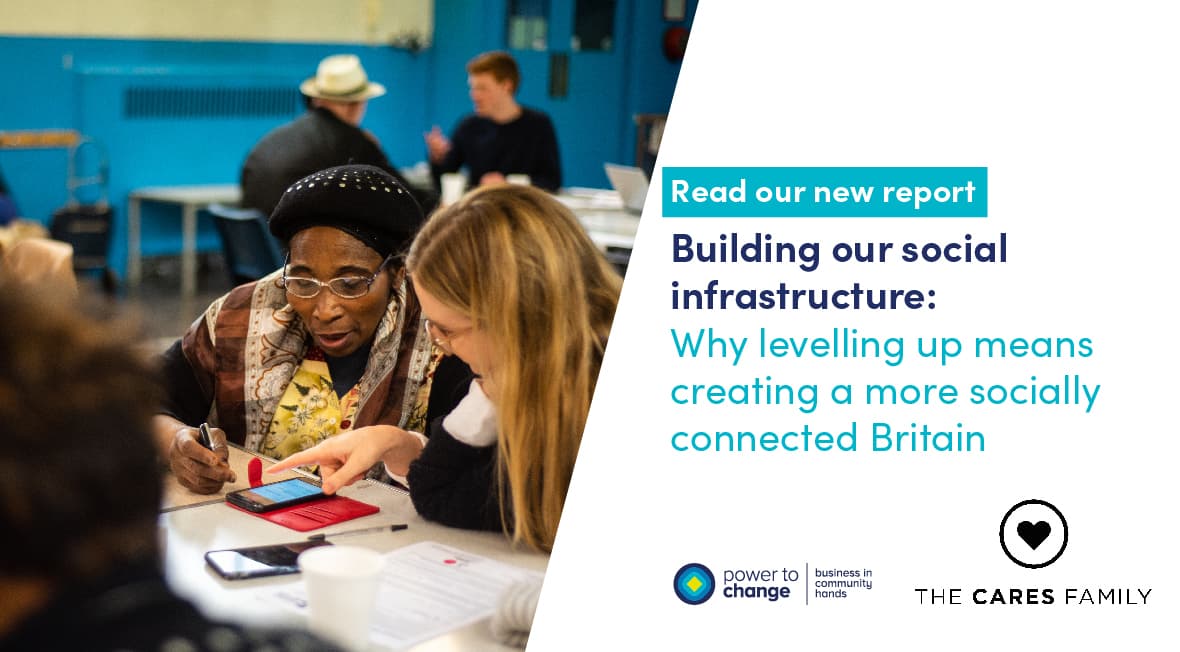
Read Building our social infrastructure here.
One way in which proponents of a more relationships-centred politics have previously sought to advance their cause is by introducing the concept of ‘social capital’ into policy discussions. As we’ve explored before, this phrase essentially describes social connections between people, but in a manner which seems concrete, quantifiable and, well, ‘economicsy’.
As Richard Harries of the Institute of Community Studies outlined in a recent blog, however, this tactic has been met with mixed results. Social capital has proven a ‘slippery concept’ which policymakers have struggled to translate into practical action.
Set against this backstory, we took heart when the government’s Levelling Up White Paper was published this past February. This document stood out for the level of emphasis which it placed on social capital not just as an explanatory factor for local decline but as a core component of the government’s policy response to that social challenge.
Alongside other measures, the government pledged in the White Paper to develop a Community Spaces and Relationships Strategy drawing ‘together new and existing policies and programmes from across government and civil society to focus on… strengthen[ing] the community and neighbourhood infrastructure needed to build social capital and enable all neighbourhoods to thrive.’
Building upon the huge step forward that they took in launching a national loneliness strategy, Ministers seemed poised to put social connection at the heart of an even more far-reaching policy programme.
Building upon the huge step forward that they took in launching a national loneliness strategy, Ministers seemed poised to put social connection at the heart of an even more far-reaching policy programme.
When Liz Truss entered Downing Street in September, though, our story took yet another turn. Advocates of community-powered politics were left uncertain as to whether her government would continue to pursue this particular version of the Levelling Up agenda. Certainly, the newly appointed government’s central focus on creating deregulatory investment zones seemed to imply a pivot to a policy approach defined by faith in liberal market economics rather than in civil society.
That’s in part why we joined last month with organisations including the Belong network, Together, British Future and The Relationships Project to implore the new Levelling Up Secretary Simon Clarke to prioritise action to grow the social capital of communities across the UK. As we wrote in a joint letter to Mr Clarke, our various organisations seek to strengthen relationships within and across communities in different ways – ‘What we share is a clear understanding that the social ties that we describe play an extraordinarily important, yet typically under-recognised, role in our collective and individual wellbeing.’
‘What we share is a clear understanding that the social ties that we describe play an extraordinarily important, yet typically under-recognised, role in our collective and individual wellbeing.’
We also joined with that same group of organisations to publish a joint policy statement, Social capital – what we mean by it and why it matters. As well as succinctly answering the questions implied by its title, this document sets out several steps that we believe the government should take in order to support people across modern Britain to feel less lonely, more united and that they belong.
It calls on the government to invest in the ‘shared spaces such as parks, community centres, libraries and sports clubs in which people come together’ and which ‘provide necessary infrastructure for those local groups and associations that foster lasting connections’. And to shape policy and funding frameworks to more effectively support community initiatives which bring people from different generations and backgrounds together to meet and mix in meaningful ways (which we at The Cares Family refer to as ‘connecting institutions’.)
This joint policy statement urges the government to recognise that action to fortify social ties ‘requires individuals and organisations at a local level with the resource and responsibility to invest in and nurture these relationships'. Indeed, we see in our day-to-day work that local people with a sense of agency are able to tap into and draw upon community networks and resources in a way that people attempting to act on their behalf simply aren’t. That more powerful communities are more connected communities, and vice-versa. That’s why Cares is playing an active role in the We’re Right Here campaign, which aims to shift power to the level of communities so that local people can exercise more control over the decisions which shape their places and futures.
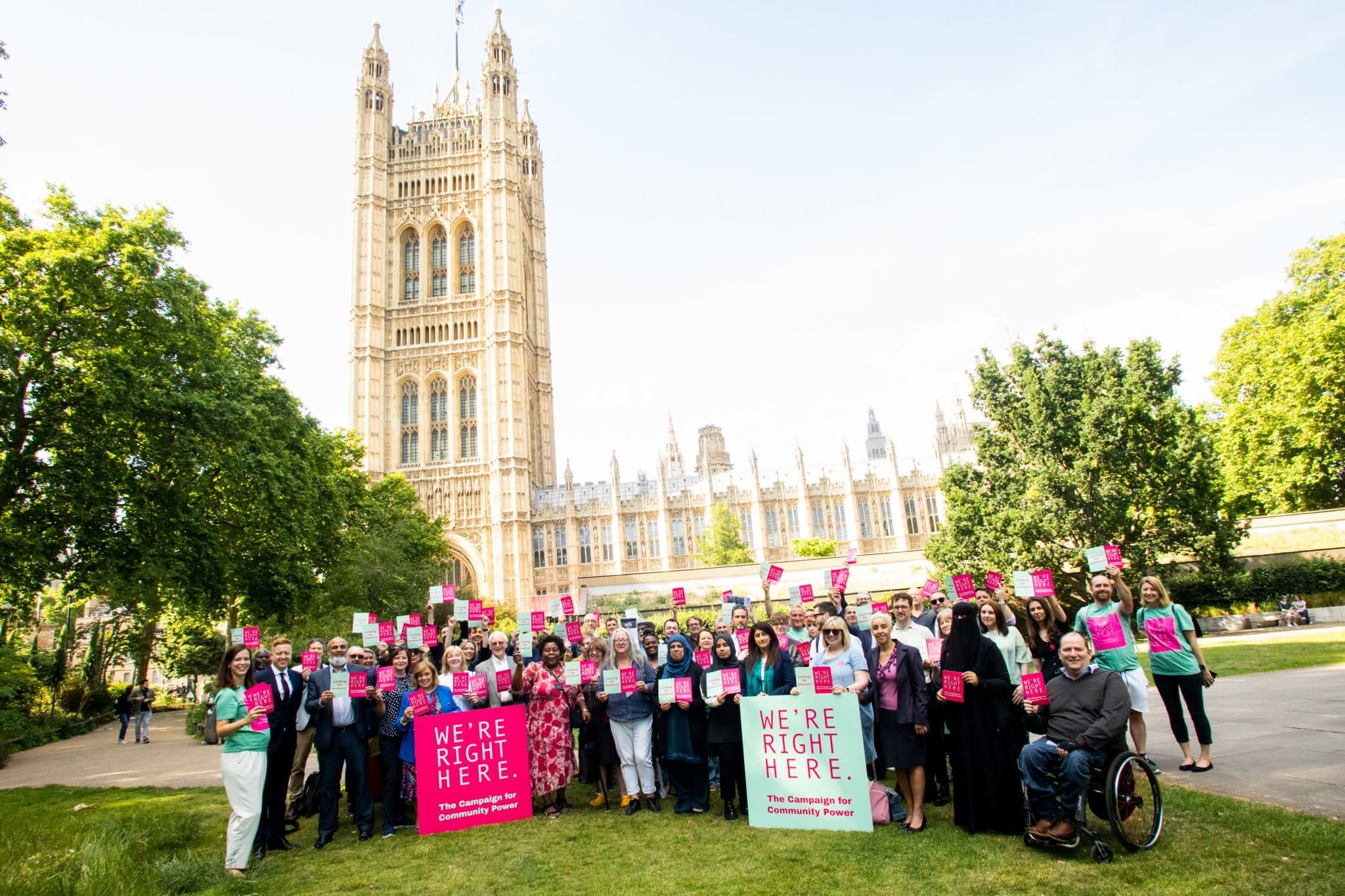
Find out more about the We're Right Here campaign here.
In any case, with the future of the still-newly formed government now in doubt, there’s arguably little to be gained by trying to predict the eventual shape of the Levelling Up policy programme. But, if the focus on social capital captured in the White Paper gets lost in the shuffle between governments, we’ll all be worse off.
The government’s role in reinforcing and expanding the ties that bind must be to augment civil society activity – not to replicate or replace it. But a national strategy to revitalise the relationships and associations which are ultimately the stuff of community could, if shaped on those terms, be truly transformative.
Now more than ever, as we enter an era in which the world seems poised to become ever more volatile, we need a practical plan to boost our nation’s community builders. A policy agenda to restore the foundations of social connection upon which strong, dynamic and resilient communities stand.
